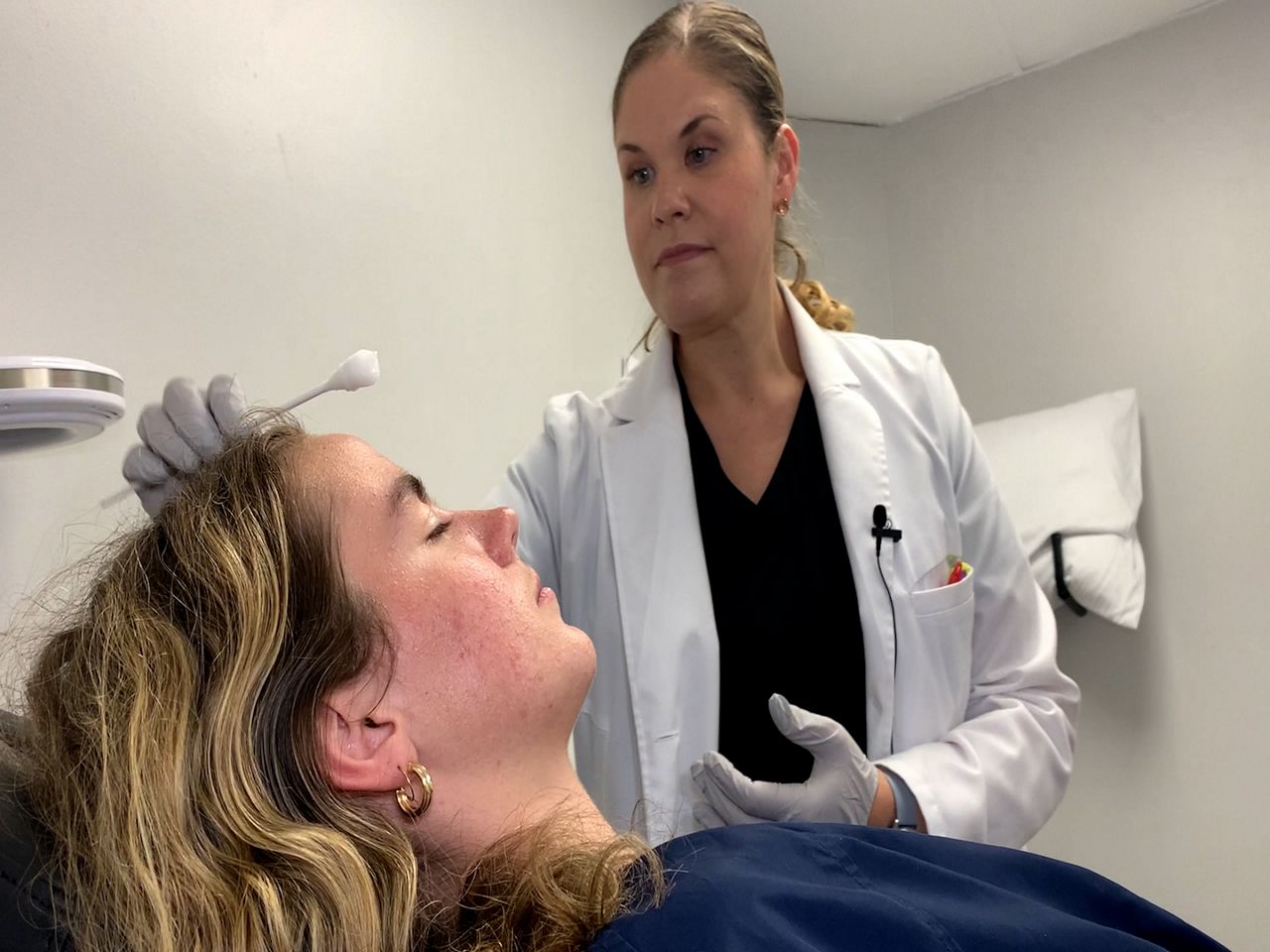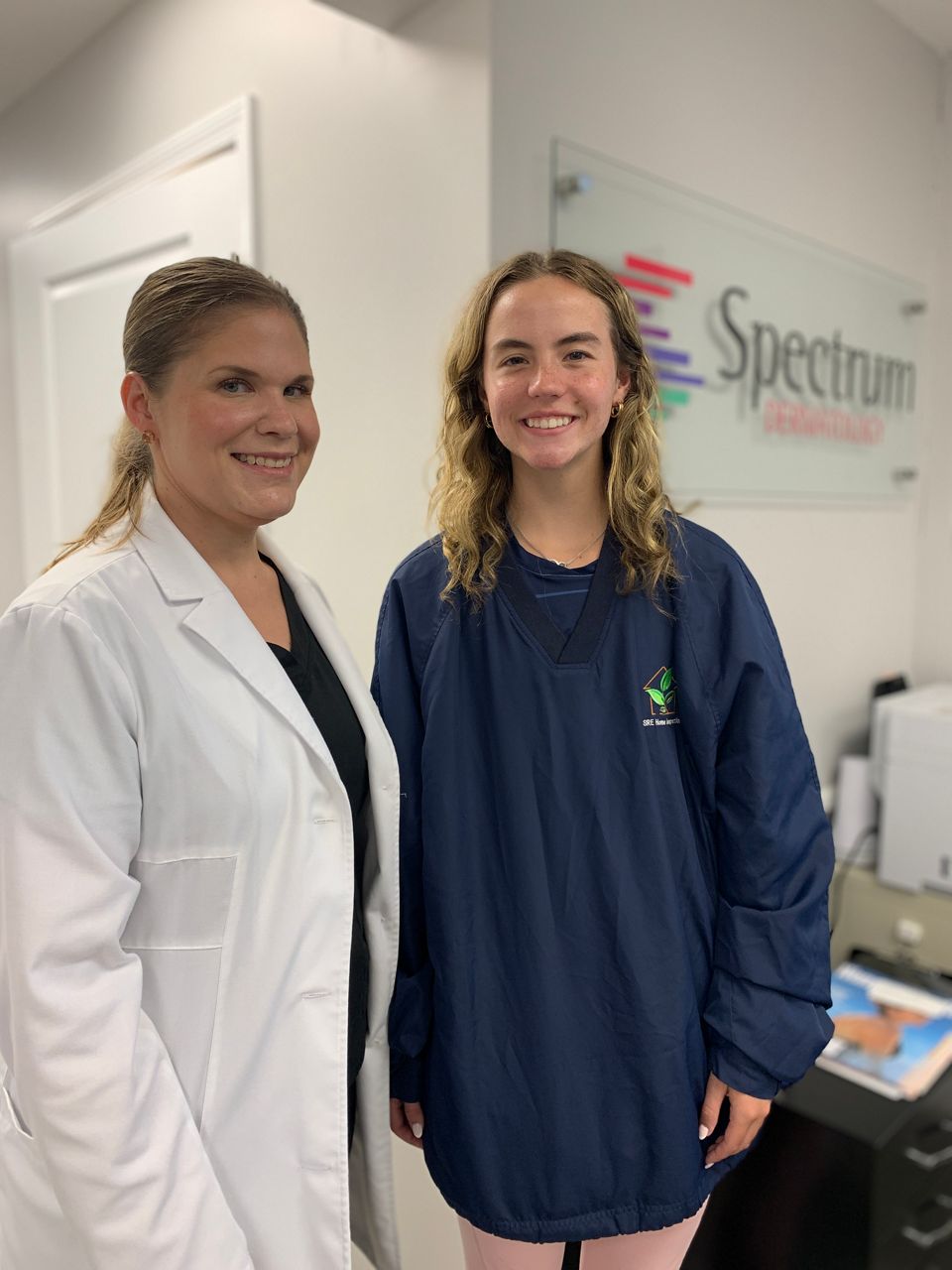CLEVELAND — Emma Forrest is a senior in high school and has been dealing with acne since 6th grade. She’s also battled depression and anxiety for years and said the pandemic has only made matters worse.
“It's been very hard and very, like — my skin has been very stubborn which just makes me very frustrated,” said Forrest. "Especially at the beginning of the pandemic, because I was just home so much and I was kind of anxious and also really stressed about school and everything.“
At Spectrum Dermatology in Rocky River, Meghan Crute is a medical doctor and dermatologist. She is seeing an uptick in the number of patients seeking help for their acne since the start of the pandemic.
“We definitely are seeing a lot of people with worsening acne. You know, I get a few different stories about maybe why, but definitely stress levels, anxiety levels — even things as simple as mask wearing and just changing environmental factors can play into it as well,” said Crute. “Stress is a huge trigger for acne and the pandemic has brought about so many changing circumstances for students, for parents, for teachers. So it's not actually just the teenagers that we're seeing with acne issues; we are definitely seeing our fair share of adults who are having flares of acne that otherwise wasn't that bad, or new onset of acne that they had not had issues with previously."

Crute said there are many causes for acne. Genetics play a role and hormones do, too, but distress over acne is often dismissed as normal teenage angst when she said it could be the sign of serious internal struggles.
“Stress can worsen acne, worsening acne causes stress and then it creates this vicious cycle,” said Crute. “Anxiety and depression can kind of sneak in there depending on how severe the stress becomes. And other people's just underlying predisposition toward mental health issues. But it's all connected. So you really have to address both aspects in order to ensure the best outcome.”
Forrest recently started prioritizing her mental health. Along with some help from Crute, her face is as clear as it’s ever been.

“Now that I'm in my senior year, I look back and I just wish I'd taken more breaks for myself and for my skin because I really needed it,” said Forrest. “I like looking at pictures of when my skin looks super-duper clear, compared to when it looks really bad and I just love to see the progress that I've made with my own skin.”
Crute wants parents to be aware of and watch for signs of mental health problems in their children as she said they’re typically going to be the first line of people to recognize some of the warning signs.
“Being a dermatologist, we're still trained to screen for those things, and kind of help assess if that's something that is going on,” said Crute. “If it's decided that mental health is an issue, we can always bring in a mental health professional to complete the team that can not only help the skin aspect, but also the mental health aspect.”
Crute said prioritizing what’s on the inside can translate to the outside.
“Once you feel good on the inside that just kind of radiates to the external so you gotta work on the inside first and the rest should follow suit,” said Crute.
For more information on Spectrum Dermatology, visit here.
